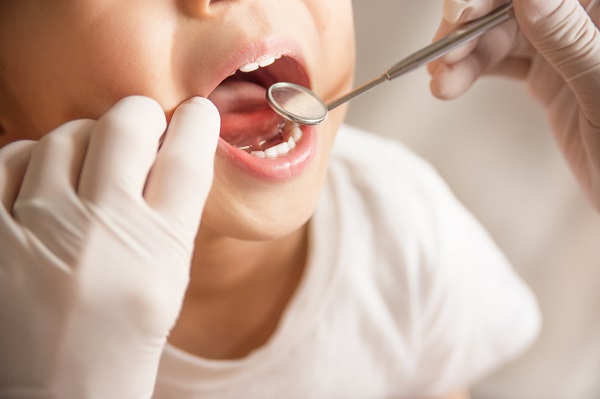Pediatric Dentistry Question – Can a Sippy Cup Help Prevent Against Tooth Decay?

Children are more likely to develop cavities than adults, so pediatric dentistry is essential for a child's oral health. There are many reasons tooth decay is a greater risk for kids, including:
- Weaker tooth enamel
- Greater exposure to germs and bacteria
- Diets higher in sugar
Using a bottle for too long can also cause cavities. Therefore, many dentists recommend switching to a sippy cup to help prevent tooth decay.
The risks of prolonged bottle use
Soft bottle nipples can be a comforting option for fussy children, especially during teething. However, milk contains plenty of sugar, which means chewing on a milk-coated bottle nipple can be problematic. The longer teeth are exposed to sugars, the more acid erosion occurs. This breaks down tooth enamel and leads to cavities. Whether a child chews on a bottle nipple or carries a bottle around to sip on, prolonged bottle use puts children at risk for more cavities.
Introducing sippy cups for healthier teeth
Sippy cups are often recommended in the world of pediatric dentistry to help prevent tooth decay and unnecessary alignment issues. However, using the wrong product or method can actually do more harm than good.
Start at the right age
While it may seem early, most children are ready to start using a sippy cup around six months of age. Babies will not be proficient right away, so nursing or bottle use is still recommended for milk consumption. However, offering water with a sippy cup at meals helps children learn how to use it properly over time. Once children are able to drink well from a sippy cup, start offering it with milk so that bottle use can stop completely by age one. By this time, many baby teeth should have now appeared and need to be protected against decay.
Choose the right spout
It may be tempting to choose a soft spout cup to make the bottle transition easier. However, these products come with the same temptations and dental health risks as bottle nipples. Most pediatric dentistry experts recommend a hard spout to discourage chewing or lingering with a sippy cup. Once children are comfortable using a hard spout, consider other options that mimic drinking from a real cup, as these can help foster better jaw and palate development.
Offer the right beverages
While a hard-spout sippy cup is certainly better than a bottle for preventing decay, a sippy cup full of juice or other sugary beverages is likely to cause more cavities. By age 1, offer milk only at mealtimes and stick with water throughout the rest of the day. This helps ensure less acid erosion and stronger tooth enamel. Save sweet drinks for special occasions and do not allow children to sip them throughout the day; this can lead to even more decay.
Conclusion
Preventing cavities in young children requires more than just brushing and flossing. Transitioning to the right sippy cup at the proper age can also help prevent tooth decay for a strong and healthy smile. Create a timeline with a dentist so you can set your child up for better oral health.
Request an appointment here: https://alexoldtowndental.com or call Alexandria Old Town Dental at (703) 763-1078 for an appointment in our Alexandria office.
Check out what others are saying about our dental services on Yelp: Pediatric Dentist in Alexandria, VA.
Related Posts
Regular pediatric dental checkups can help determine if your child needs a dental filling. Kids tend to eat more carbohydrate-rich foods. The starches and sugars tend to feed bacteria in the mouth, making them produce more acids. This results in weak enamel and cavity formation. A dental filling can restore your child’s teeth. If you…
A children's dentist can help set your child up for a lifetime of healthy smiles. Taking children to a dentist for preventative treatments that support their oral health is crucial. Checkups, cleanings, fluoride treatments, and dental sealants are among the most important tools a dentist uses to help keep your child's mouth healthy. Good oral care…
A common pediatric dental issues that parents and children face is thumb sucking. While it's normal for very young children, this practice can be problematic if it continues into the preschool years and beyond. Fortunately, there are ways to eliminate the habit for better dental and overall health.Thumb sucking may seem harmless and even endearing…
A children's dentist typically advises parents to care for their baby's teeth. Some people believe that this is unnecessary because the teeth will fall out eventually. But the baby teeth play a crucial role in the child's development, so it is necessary to take care of them. These teeth are still prone to decay, getting…
